Life
Sign up for our newsletter
We summarize the week's scientific breakthroughs every Thursday.
-
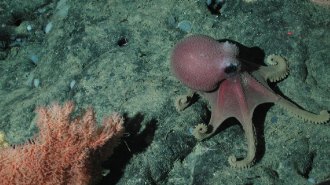 Science & Society
Science & SocietySea life offers a lens for self-exploration in ‘How Far the Light Reaches’
In a collection of essays profiling 10 marine animals, author Sabrina Imbler mixes in stories of their own family, self-discovery, sexuality and healing.
By Aina Abell -
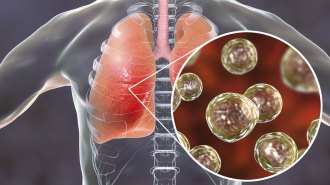 Health & Medicine
Health & Medicine4 key things to know about lung infections caused by fungi
News that three kinds of fungi are more widespread than previously thought prompted reader questions about risk, symptoms and more. We answer them.
-
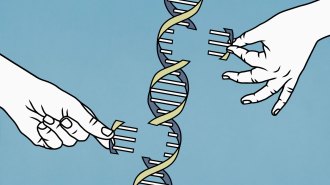 Genetics
Genetics50 years ago, scientists sequenced a gene for the first time
Within five decades, scientists went from sequencing a single gene to sequencing the entire human genome.
-
 Microbes
MicrobesMeet some of the microbes that give cheeses flavor
Knowing which genus of bacteria is responsible for which flavor could open the door to new types of cheese.
-
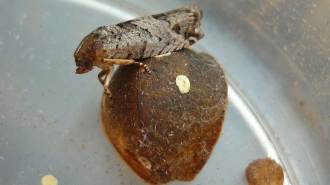 Animals
AnimalsJumping beans’ random strategy always leads to shade — eventually
Jumping beans use randomness to maximize their chances of getting out of the sun’s heat, a new study finds.
-
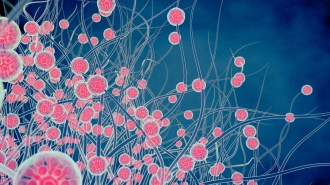 Health & Medicine
Health & MedicineFungi that cause serious lung infections are now found throughout the U.S.
Doctors should be on the lookout for three types of fungi that, when inhaled, can lead to serious infections, researchers say.
-
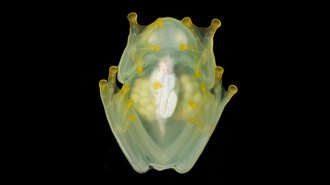 Life
LifeSleeping glass frogs hide by storing most of their blood in their liver
Glass frogs snoozing among leaves blend in by hiding almost all their red blood cells in their liver until the tiny animals wake up.
By Susan Milius -
 Life
LifeHere are 5 record-breaking science discoveries from 2022
The earliest surgery, fastest supercomputer and biggest single-celled bacteria were some of this year’s top science superlatives.
By Erin Wayman -
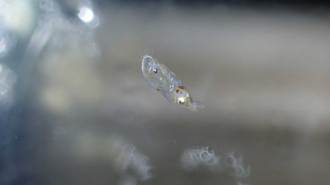 Life
LifeSquid edit their RNA to keep cellular supply lines moving in the cold
Squid change their RNA more often in the cold, producing motor proteins that keep cellular cargo on track.
-
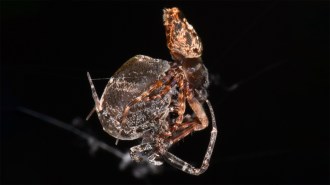 Animals
AnimalsThese are our favorite animal stories of 2022
Goldfish driving cars, skydiving salamanders and spiders dodging postcoital death are among the critters that most impressed the Science News staff.
-
 Paleontology
PaleontologyMysterious ichthyosaur graveyard may have been a breeding ground
Some 230 million years ago, massive dolphinlike reptiles gathered to breed in safe waters — just like many modern whales do, a study finds.
-
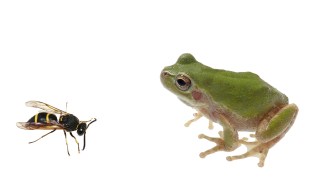 Life
LifeLong genital spines on male wasps can save their lives
A male wasp’s genital spines can save his life in an encounter with a scary tree frog, a new study shows.
By Susan Milius